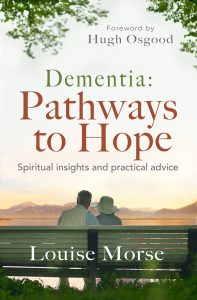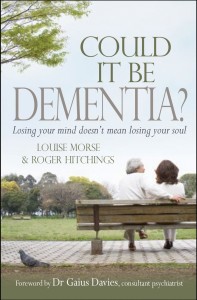No cure for dementia, so let’s work to prevent it.
It was ‘plus ca change plus c’est la meme chose’ at this year’s Alzheimer’s Association International Conference in London. Or as Solomon observed, ‘there is nothing new under the sun.’ There’s no cure for dementia and the causes are still largely unknown, so the move now is towards finding ways of preventing it. A big metastudy by experts on ageing based at University College London, came up with a plan that would help to do exactly that. You can read it here – (risk factors).
 For the first time researchers identified mid-life hearing loss as one of the worst because it places a ‘significant compensatory burden’ on the brain and can cause it to shrink, but also because it raises the risk of social isolation, leading to feelings of loneliness and depression. Negative emotions like these are usually only glancingly noted, but here they’re included on the ‘risk list’. Feelings of loneliness double the chances of developing dementia, and depression slows blood flow to the brain. Chronic stress is also a known danger, prompting an inflammatory response.
For the first time researchers identified mid-life hearing loss as one of the worst because it places a ‘significant compensatory burden’ on the brain and can cause it to shrink, but also because it raises the risk of social isolation, leading to feelings of loneliness and depression. Negative emotions like these are usually only glancingly noted, but here they’re included on the ‘risk list’. Feelings of loneliness double the chances of developing dementia, and depression slows blood flow to the brain. Chronic stress is also a known danger, prompting an inflammatory response.
The conference coincided with the publication by the University of Wisconsin School of Medicine and Public Health earlier this week showing that traumatic life events increase risk. Twenty-seven examples were listed, ranging from having to repeat a year of school, to the death of a parent or a sibling, or having an unfaithful spouse or partner. The effect is cumulative, with more events accelerating an ageing process and the risk of dementia. It’s good that more attention is being paid to the effects of damaging emotions. I’ve often referred to the late Professor Tom Kitwood, the clinical psychologist who’s seminal work, Dementia Reconsidered, changed the whole paradigm of dementia. He suggested that the progression of dementia was due to a ‘malign social pathology’, in other words, the body of sin in the world. He didn’t use the word ‘sin’, but described the evil of unkindness in our society. He said that every interaction was a ‘neuronal event’.
The good news is that the rate of new cases of dementia, the incidence, has dropped by 20% in the last two decades. However, there will still be an increase amongst the 80-year-olds and up because this is when the likelihood of dementia is higher. And, thinking of the Wisconsin study, could it be that this older generation has been affected by the trauma of World War II with those years of fear and the loss of so many loved ones? When coping meant keeping a stiff upper lip?
Perhaps Christians should add another preventative to their plan. ‘Above everything else, guard your heart; for it is the source of life’s consequences,’ says Proverbs 4:23 (CJB). I wonder – how do you guard yours?
 You’ll find more information about research and practical ways of ‘guarding your heart’ in the books, ‘Could it be Dementia? Losing your mind doesn’t mean losing your soul,’ and ‘Dementia: Pathways to Hope’. They’re both available on Amazon, etc., and through our website.
You’ll find more information about research and practical ways of ‘guarding your heart’ in the books, ‘Could it be Dementia? Losing your mind doesn’t mean losing your soul,’ and ‘Dementia: Pathways to Hope’. They’re both available on Amazon, etc., and through our website.

















